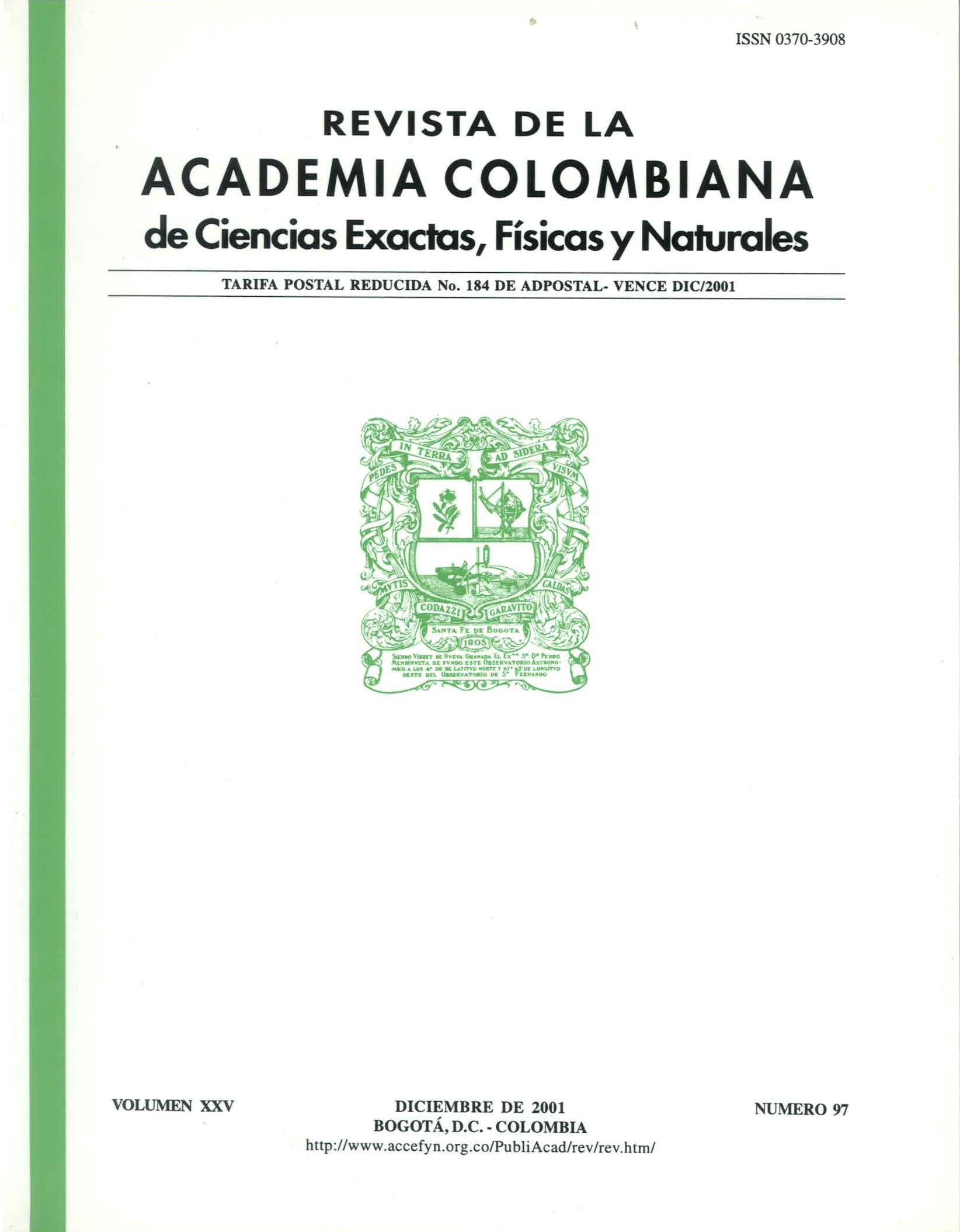Resumen
Los fondos plano-arenosos con fragmentos y piedras calcáreas formadas por acreción de coralináceas incrustantes. contiguos al talud de los sistemas coralinos del Atlántico. presentan una vegetación rica en especies. La mayoría de estas algas son excluidas del talud y partes someras del arrecife coralino por los peces e invertebrados herbívoros. Las más dominantes y carentes de defensas químicas para contrarrestar la predación, han desarrollado evolutivamente una gran habilidad competitiva por el espacio primario y la adaptación a niveles bajos de luz. La competencia por el espacio no parece jugar un papel importante en la estructuración de estas comunidades y más bien ello obedece a la disturbancia creada por un factor físico estacional, condición que explica el mantenimiento de la alta diversidad.
Referencias
Adey, W.H. 1998. Coral reefs: algal structured and mediated ecosystems in shallow turbulent, alkaline waters. J. Phycol. 34: 393-406.
Atkinson, C.S., S. Hopley., L. Mendelsohn & S. Yacowitz. 1973. Food studies on Diadema antillarum on a patch reef, St. Croix, U.S. Virgin Islands. In Ogden JC, Abbott DP. Abbott IA (eds). Studies on the activity and food of the Echinoid Diadema antillarum Philippi on a West Indian patch reef. West Indies Laboratory, Spec. Publ.. St. Croix, U.S. Virgin Islands 9: 65-80.
Bula-Meyer, G. 1987. Taxonomic and ecologic studies of a subtidal sand plain macroalgal community in the Colombian Caribbean. Ph.D. Thesis. University of Delaware, Newark, USA. 189 p.
Bula-Meyer, G. 1989a. Micro-macroalgas marinas alelopáticas: biología, toxinas y significado ecofisiológico (revisión). Rev. Ing. Pesq., (edic. especial), Santa Marta 9: 1-110.
Bula-Meyer, G. 1989b. Altas temperaturas estacionales del agua como condición disturbadora de las macroalgas del Parque Nacional Tairona, Caribe colombiano: una hipótesis. An. Inst. Inv. Mar. Punta Betín 19-20: 9-21.
Bula-Meyer, G. 1993. ¿Están las algas marinas tropicales de los planos arenosos profundos fisiológicamente restringidas a estos hábitats contiguos al talud arrecifal? Mem. VIII Sem. Nac. Cien. Tecn. Mar. 196-205.
Bula-Meyer, G. 1995. Macroalgas de la Isla de Gorgona (Pacífico colombiano) con nuevos registros y una explicación a la baja diversidad y biomasa. En Pinto, P. (Ed.). La Isla de Gorgona: nuevos estudios biológicos. Biblioteca J.J. Triana, 11: 23-45.
Bula-Meyer, G. 2001. Perturbación biológica extrema en los sistemas coralinos del Caribe. Rev. Acad. Colom. Cien. Exactas, Fís. Y Nat. (en prensa).
Connell, J.H. 1978. Diversity in tropical rain forests and coral reefs. Science 199: 1302-1310.
Hawkins, S.J. & E. Harkin. 1985. Preliminary canopy removal experiments in algal dominated communities low on the shore and in the shallow subtidal on the Isle Man. Bot. Marina 28: 223-230.
Hay, M.E. 1981. Herbivory, algal distribution, and the maintenance of between-habitat diversity on a tropical fringing reef. Am. Nat. 118: 520-540.
Hay, M.E. 1984. Predictable spatial escapes from herbivory: how do these affect the evolution of herbivore resistance in tropical marine communities? Oecologia (Berlín) 64: 396-407.
Hoek, C. van den. 1969. Algal vegetation-types along the open coast of Curacao, Netherlands Antilles. Proc. K. Ned. Akad. Wet. Ser. C. 72: 537-577.
Lessios, H.A., D.R. Robertson & J.D. Cubil. 1984. Spread of Diadema mass mortality through the Caribbean. Science 266: 335- 337.
Levin, D.A. 1976. The chemical defenses of plants to pathogens and herbivores. Ann. Rev. Ecol. Syst. 7: 121-159.
Lieberman, M., D.M. John & D. Lieberman. 1979. Ecology of subtidal algae on seasonally devastated cobble substrates off Ghana. Ecology 60: 1151-1161.
Littler, M.M. & D.S. Littler. 1984. Models of tropical reef biogenesis: The contribution of algae (Ed. by F.E. Round) Prog. Phycol. Res. (Biopress Bristol) 3: 323-364.
Littler, M.M. & D.S. Littler. 1988. Structure and role of algae in tropical reef communities. In Lembi CA, Waaland JR (eds), Algae and Human Affairs Cambridge University Press 29-56.
Paul, V.J. & M.E. Hay. 1986. Seaweed susceptibility to herbivory: chemical and morphological correlates. Mar. Ecol. Prog. Ser. 33: 255-264.

Esta obra está bajo una licencia internacional Creative Commons Atribución-NoComercial-SinDerivadas 4.0.

